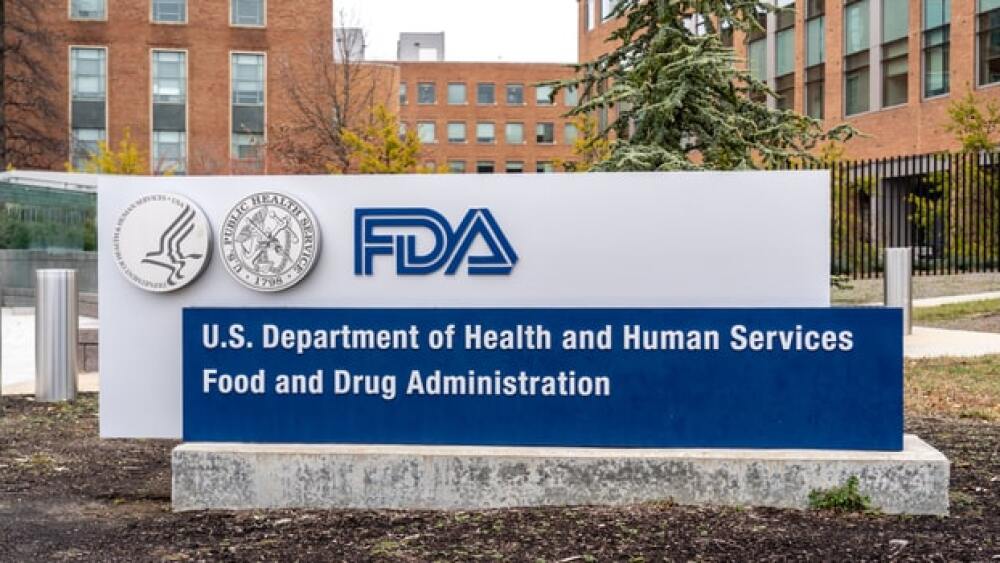The FDA is gearing up for deadlines and PDUFA dates in mid-November with Seagen, Provention, Clarus and Tolmar, and Ligand and Travere.
JHVEPhoto/GettyImages
The FDA is gearing up for Clarus and Tolmar’s PDUFA fee deadline, as well as PDUFA dates for Seagen’s Adcetris in Hodgkin lymphoma and Provention’s teplizumab for diabetes.
For that and more, continue reading.
Clarus and Tolmar Payment Deadline
Clarus Therapeutics and Tolmar have a PDUFA fee deadline of Nov. 7 for Jatenzo, a testosterone replacement therapy.
On Oct. 18, Clarus Therapeutics, as part of a bankruptcy proceeding, announced that Tolmar was the winning bidder in a competitive bidding and auction for the sale of Jatenzo and related assets. The company now owes $1,181,799, according to the SEC filing.
“In the event the Purchaser is unable to pay the 2023 PDUFA Fee, and Purchaser requests the Sellers to pay the 2023 PDUFA Fee, the Sellers shall pay, or cause to be paid the 2023 PDUFA Fee...” An SEC filing stated.
A Clarus spokesperson told BioSpace the PDUFA fee for Jatenzo was not for a supplemental indication, and there was no 2023 PDUFA date. Tolmar has not yet responded to BioSpace‘s request for comment.
Seagen’s Adcetris and Chemotherapy in Children with High-Risk Hodgkin Lymphoma
Seagen has a target action date of Nov. 16, for its supplemental Biologics License Application (sBLA) for Adcetris plus chemotherapy for children and young adults with high-risk, previously untreated classical Hodgkin lymphoma.
The sBLA was based on the results from a Phase III Children’s Oncology Group trial, which demonstrated a clinically meaningful and statistically significant 59% decrease in the risk of disease progression or relapse, second malignancy or death, and superior event-free survival compared to the current standard of care.
The drug also has an sNDA target action date of Jan. 19, 2023 under Priority Review. The sNDA is for accelerated approval of Tukysa in combination with trastuzumab for adults with HER2-positive colorectal cancer who have received at least one previous treatment for unresectable or metastatic disease.
Tukysa is an oral tyrosine kinase inhibitor of the HER2 protein. The drug is approved in 38 countries for adults with advanced unresectable or metastatic HER2-positive breast cancer, including patients with brain metastases who received one or more previous anti-HER2-regimens in the metastatic setting.
Ligand and Travere’s Sparsentan for IgA Nephropathy
Ligand Pharmaceuticals and its partner Travere Therapeutics have a target action date of Nov. 17 for their New Drug Application (NDA) for Sparsentan for treatment of IgA nephropathy.
Travere, working with its partner Vifor Pharma, also reported plans to submit a Conditional Marketing Authorization for the drug in Europe, with a decision expected in the second half of 2023.
Sparsentan is a novel compound that acts as a high-affinity dual-acting antagonist of the endothelin type A and angiotensin II type 1 receptors. It has been granted Orphan Drug Designation for the treatment of both IgAN and focal segmental glomerulosclerosis (FSGS) in the U.S.
On Oct. 13, Travere reported that it expected the FDA to extend the target action date by three months after late-cycle review interactions. The FDA had requested Travere update its proposed Risk Evaluation Mitigation Strategy (REMS) to include liver monitoring for the drug that was consistent with other approved drugs in the same class.
The company said it plans to submit an updated REMS plan soon but believes this will be considered a major amendment to the NDA. No additional clinical data or studies have been requested.
“While this request for additional monitoring within the REMS came unexpectedly, the strength of the clinical data supporting the profile of sparsentan and our confidence in the potential for sparsentan to be approved as a new therapy for IgA nephropathy remain unchanged,” Eric Dube, Ph.D., president and CEO of Travere stated.
Provention’s Teplizumab for Type 1 Diabetes
Provention Bio has a target action date of Nov. 17 for its BLA for teplizumab to treat Type 1 Diabetes.
The date was originally Aug. 17. But on Jun. 30, the FDA requested additional information, classified it as a significant amendment and added three months to the review period.
Teplizumab reduces the loss of beta-cell function, which delays T1D onset. The drug is an anti-CD3 monoclonal antibody that modifies CD8+ cells.
In the pivotal TN-10 trial, teplizumab delayed insulin-dependent, clinical-stage disease by at least two years. It also demonstrated a favorable safety and tolerability profile. There were risks of cytokine release syndrome and lymphopenia. However, because the drug is not intended to be taken chronically, the company views the adverse events as manageable and short-term.
The drug was rejected once by the FDA in July 2021. The agency at that time indicated Provention’s studies did not demonstrate pharmacokinetic comparability, a primary endpoint. The company then used pharmacokinetic modeling to adjust the 14-day dosing regimen of the commercial formulation to be equivalent to exposure to the clinical compound used in an earlier trial and resubmitted the BLA in January.
In early October, Provention Bio inked a co-promotion deal for the drug with Sanofi. Provention holds all rights to the drugs and will handle all R&D, pharmacovigilance, production, quality and safety activities. Sanofi also acquired $35 million in Provention common shares at a premium of 40% after FDA approval.
At the time, a Sanofi spokesperson told BioSpace, “Provention Bio has granted Sanofi an exclusive right of first negotiation (ROFN) for a potential in-license agreement of teplizumab in T1D, worldwide.”
The ROFN began Oct. 4, and runs until Jun. 20, 2023. Sanofi could extend it upon payment of a one-time extension fee.





